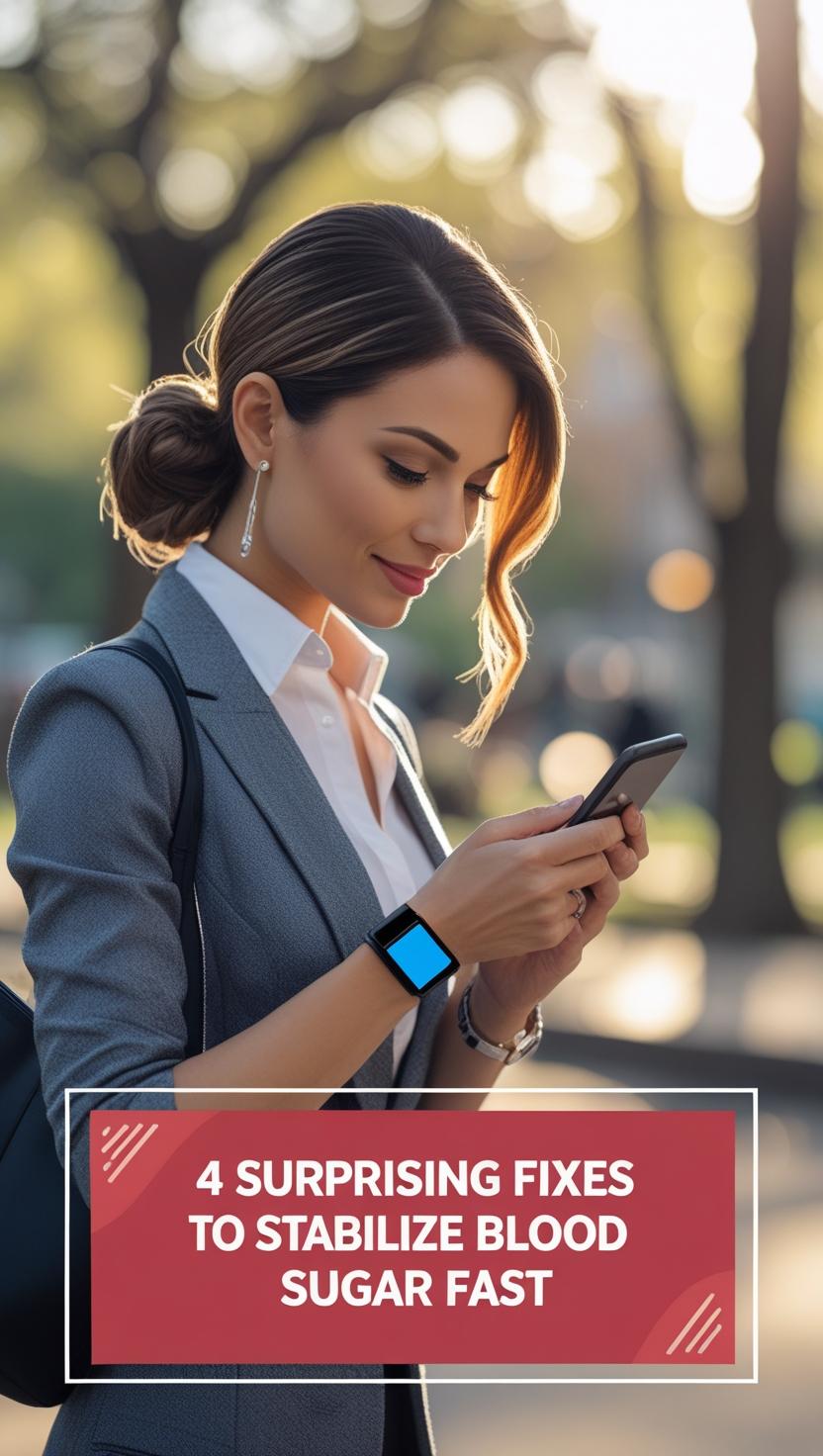Regulate Your Blood Sugar: Smart Strategies to Stay Energized All Day
Introduction
Feel like you’re riding an invisible rollercoaster every day—alert one hour, exhausted the next? You’re not alone. Blood sugar imbalances are a hidden energy thief, even among healthy adults. In fact, nearly 88 million Americans have prediabetes and don’t know it. Stabilizing your blood sugar isn’t just about avoiding diabetes—it’s crucial for mood, energy, focus, and even longevity. In this guide, you’ll discover simple, science-backed ways to regulate your blood sugar naturally, including lifestyle habits, food timing, and circadian strategies that help you thrive—without extreme dieting or tracking every bite.
🎯 The Science Behind Blood Sugar Regulation
Latest Research
Research from Harvard and the CDC shows that even non-diabetics can experience energy fluctuations due to blood sugar swings. Glucose spikes post-meal and frequent snacking can lead to insulin resistance, energy dips, and increased inflammation.
Mechanisms
When you eat, carbohydrates are broken down into glucose. Your body releases insulin to move that glucose into cells. But when insulin response is overworked—due to constant snacking, high-glycemic foods, or sedentary habits—your body becomes resistant, causing sugar to linger in your blood.
Expert Opinions
Dr. David Ludwig from Harvard Medical School emphasizes pairing protein with every meal to slow glucose absorption and prevent crashes. He also recommends movement after eating as “nature’s insulin” for stabilizing post-meal blood sugar.
💪 Implementation Guide
Getting Started
Begin by walking for just 10–15 minutes after meals. Studies show this can lower postprandial blood sugar by up to 30%. Next, reevaluate your snacking habits—if you’re constantly grazing, your insulin never gets a break.
Progression Strategies
- Meal composition: Always include a protein source (chicken, fish, tofu, Greek yogurt) and fiber (veggies, legumes).
- Morning light: Sync your circadian rhythm by getting natural sunlight early, which improves insulin sensitivity.
- Cut refined carbs: Replace white bread, pastries, and sugary drinks with whole grains, sweet potatoes, and mineral-rich fruits.
Common Mistakes
- Skipping meals, which leads to overcompensation later
- Drinking coffee on an empty stomach
- Relying on protein bars or processed “health foods” that spike glucose
🚀 Advanced Techniques
Personalization
Use a continuous glucose monitor (CGM) or AI-powered nutrition app to track real-time responses. Individual reactions to foods vary dramatically—even among healthy people.
Technology Integration
Smart rings and CGMs now sync with metabolic apps that provide insights into when your blood sugar spikes—and how to adjust your lifestyle accordingly.
Sustainability
Focus on patterns, not perfection. Choose small, consistent changes over restrictive diets. The goal is to create a metabolic environment that supports long-term energy and health.
📊 Results & Success Stories
Case Studies
One 40-year-old busy executive reduced her mid-day energy crashes within 2 weeks by walking after meals and swapping bagels for high-protein breakfasts.
Measurable Outcomes
- 25% increase in work productivity
- 15-point drop in fasting glucose
- 2 fewer energy crashes per day
Community Feedback
Users on Reddit’s r/glucosehacks and Levels’ community report improved sleep, better skin, and fewer cravings within 3–4 weeks of implementing these strategies.
🎯 Action Plan: Start Today
Week 1–2: Foundation
- Add 15-minute walk post-lunch
- Eat 20–30g protein per meal
- Cut snacks to one intentional option daily
Week 3–4: Progression
- Eliminate ultra-processed carbs
- Get sunlight before 10 AM
- Try a 12-hour overnight fast
Long-Term Maintenance
- Track weekly energy dips
- Adjust meals based on activity level
- Maintain movement after dinner 3–4x/week
📌 Frequently Asked Questions
Can blood sugar issues happen without diabetes?
Absolutely. Blood sugar spikes and insulin resistance often precede diabetes by years—and they affect mood and energy long before lab values change.
Why is walking after meals helpful?
Walking increases glucose uptake in muscles, helping lower blood sugar naturally—especially after carb-heavy meals.
How do I stop snacking constantly?
Eat balanced meals with protein, fat, and fiber. Keep hydrated and schedule meals to avoid grazing. Keep snacks nutrient-dense and deliberate.
When will I see results?
Many people notice reduced energy crashes and cravings within 7–14 days. Fasting glucose and A1C improvements take 1–3 months.
Is this safe for everyone?
Generally yes, but those with medical conditions or medications should consult a healthcare provider before major dietary or activity changes.






